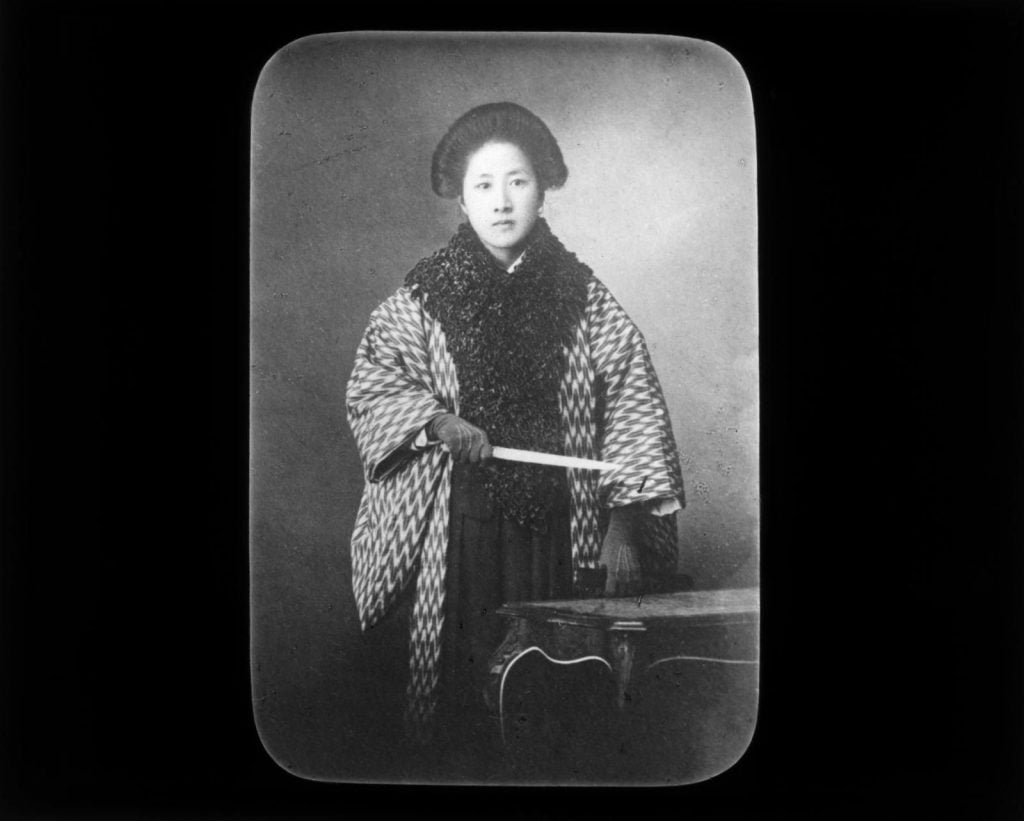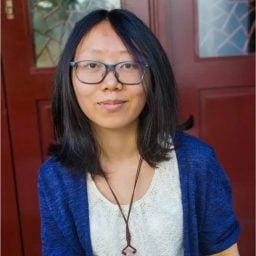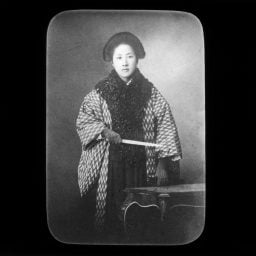London’s British Museum has removed two poems by the early-20th-century feminist revolutionary and poet Qiu Jin from view after Vancouver writer Yilin Wang accused the institution of reproducing her copyrighted translations of the works without permission, credit, or compensation.
The poems were included in the exhibition “China’s Hidden Century” (though October 8), which explores life in 19th-century China, and the effects of the rise of new art forms and technologies. Qiu, an advocate for women’s rights who ran a school that trained young revolutionaries against the Qing dynasty, is one of the subjects of the exhibition. (Authorities beheaded her at the age of just 31 in 1907, leading some to call her China’s Joan of Arc.)
Wang took to Twitter when she discovered that her translations of Qiu’s poems were on view in the show, accusing the museum of copyright infringement, as reported by Hyperallergic. Translations, even of writings in the public domain, are considered derivative works protected by their own copyright.
“This was an unintentional human error for which the museum has apologized,” the British Museum said in a statement. “We have taken down their translations in the exhibition. We have also offered financial payment for the period the translations appeared in the exhibition as well as for the continued use of quotations from their translations in the exhibition catalogue. The catalogue includes an acknowledgement of their work. We continue to be in discussion with Yilin Wang.”
As of press time, Wang had not responded to inquiries from Artnet News, but she had published an update on Twitter. “Someone who works for the museum has reached out to apologize (neither of the 2 organizers have apologized),” she wrote. “They’re offering to send me their permission form and I have asked them for a list of the places where the translations appear. Hope to have more news soon.”
Then, Wang shared this email she said she had received from the museum: “We will not be reinstating the translations in the exhibition that have been removed following your complaint, and therefore you will not be acknowledged in the exhibition as your work will not be featured.”
The museum refused further comment on why the exhibition would not just add a credit for the translated poems.
Wang is currently working on a book-length translation of Qiu’s poetry, and has thus far published about 12 translated poems—a process that can take months, “perhaps an average of 20–50 hours per poem,” she wrote on Twitter.
The translator learned of the museum’s unauthorized use of her work because she was looking into the show as part of her ongoing research into Qui’s life and career.

Qiu Jin in Kimono. Collection of the Wisconsin Historical Society, WHI-111120, Carrie Chapman Catt diaries and photographs 1911–12.
“I was shocked to find my own translations staring back at me,” Wang wrote, sharing photographs of the translated poems not only inside the museum galleries, but also in the printed exhibition catalogue and the online guide to the show.
Now, she wants an apology from the exhibition curators, an explanation as to how this happened, and consequences for the organizers, as well as compensation and a written credit.
The show was curated by Jessica Harrison-Hall, the museum’s curator of Chinese ceramics, and Julia Lovell, a professor of Chinese History and literature at Birkbeck, University of London. The two received a £719,000 ($949,370) grant from the Art and Humanities Research Council grant in support of the exhibition.
“China’s Hidden Century” is on view at the British Museum, the Sainsbury Exhibitions Gallery, Great Russell Street, London WC1B 3DG, U.K., May 18–October 8, 2023.
More Trending Stories:
A Bejeweled Prayer Book in a Cambridge Library Has Been Identified as Belonging to Thomas Cromwell, Henry VIII’s Chief Minister
The Brooklyn Museum’s Much-Criticized ‘It’s Pablo-matic’ Show Is Actually Weirdly at War With Itself Over Hannah Gadsby’s Art History
Rubens Painting Lost For 300 Years and Misidentified When Last Sold at Auction Will Star At Upcoming Sotheby’s Sale in London
In Her Cinema-Inspired Paintings, Eunnam Hong Captures the Uneasiness of the Alternative Identities We All Put On
London’s National Portrait Gallery Responds to Rumors That Kate Middleton Pressured It to Remove a Portrait of Princes William and Harry
French Archaeologists Decry the Loss of 7,000-Year-Old Standing Stones on a Site That Was ‘Destroyed’ to Make Way for a DIY Store
Excavations at an Ancient Roman Fort in Spain Have Turned Up a 2,000-Year-Old Rock Carved With a Human Face and Phallus










